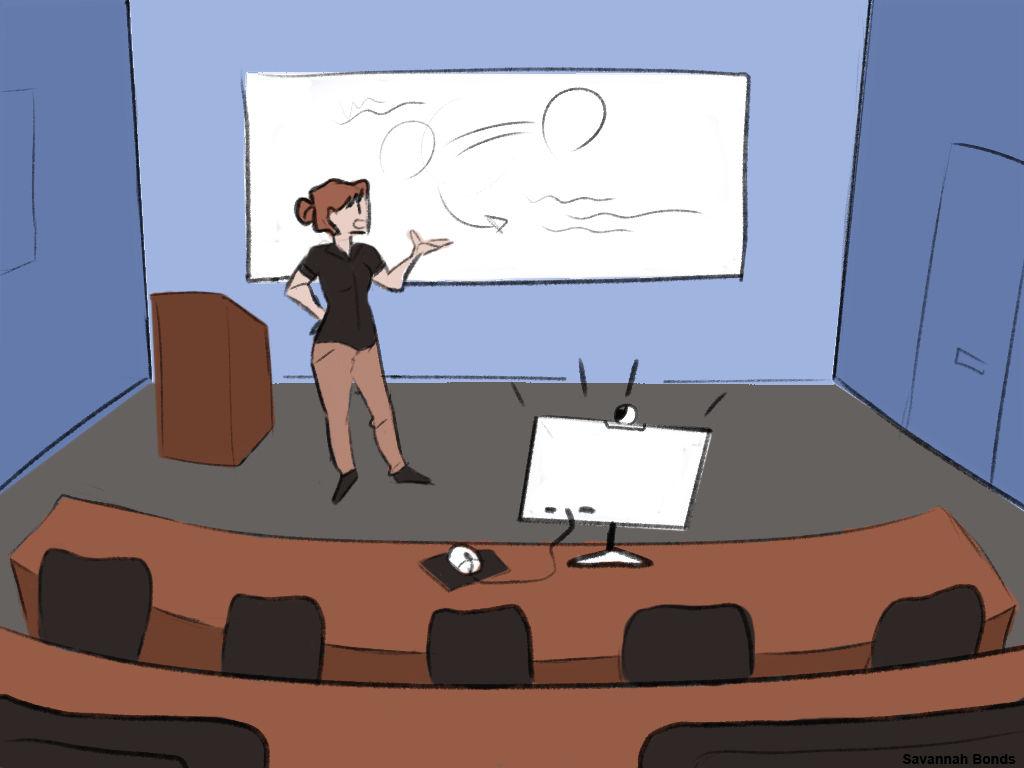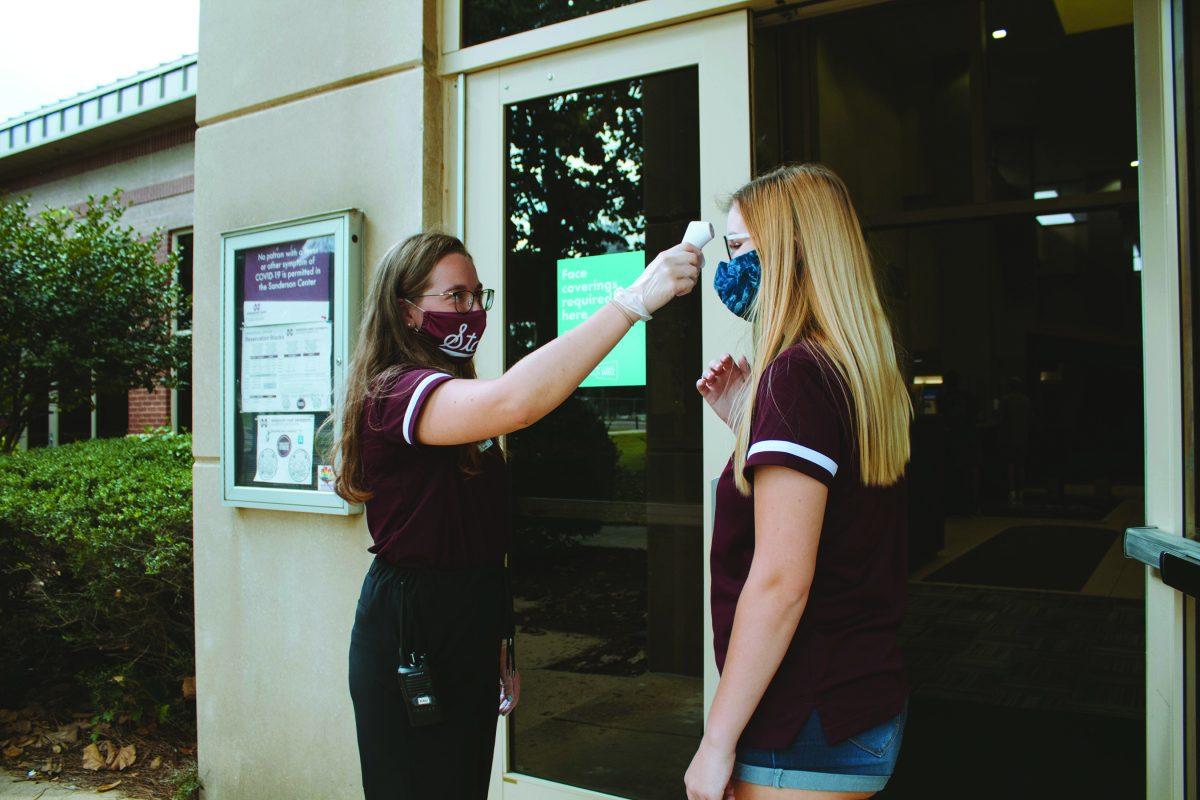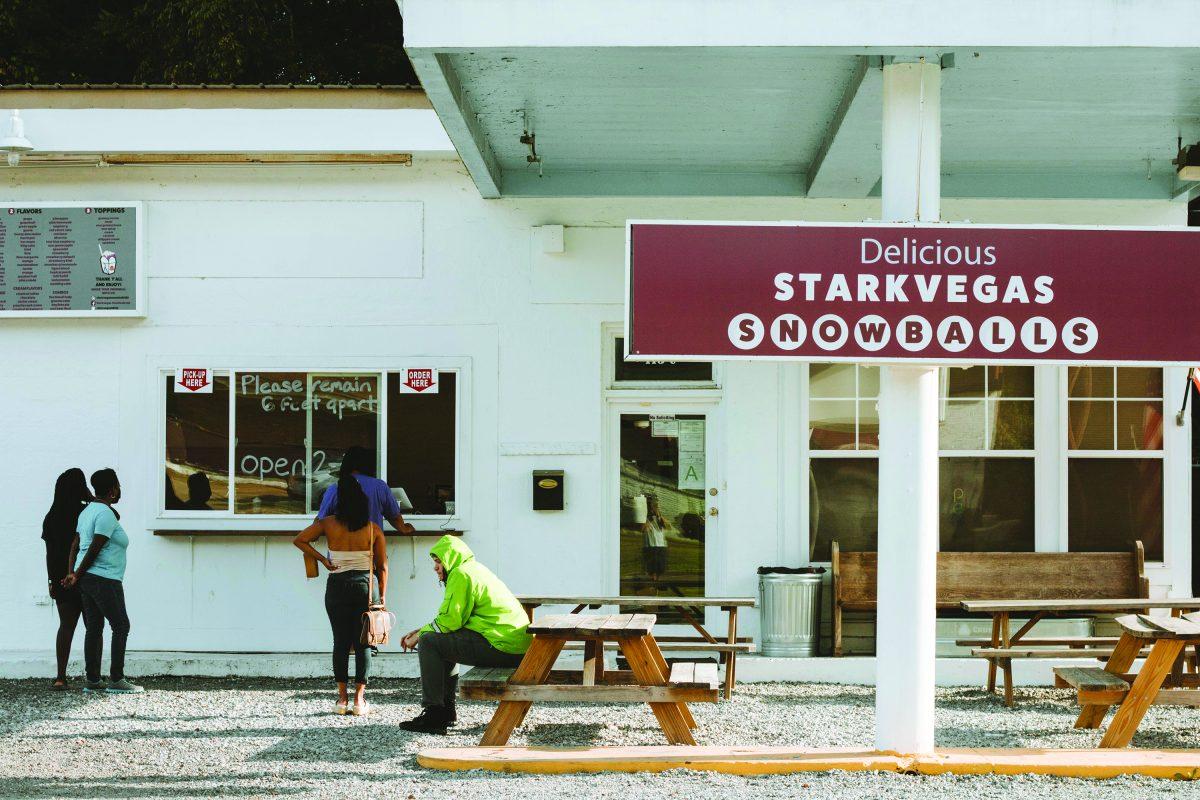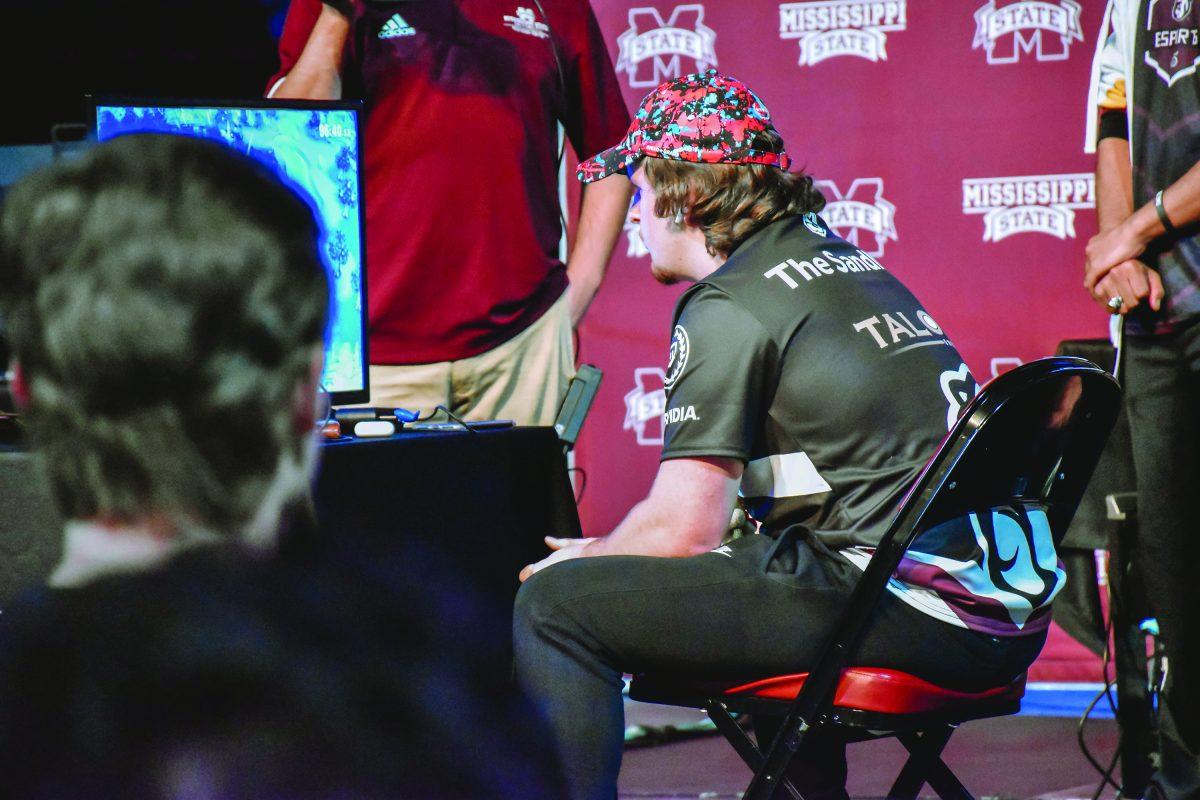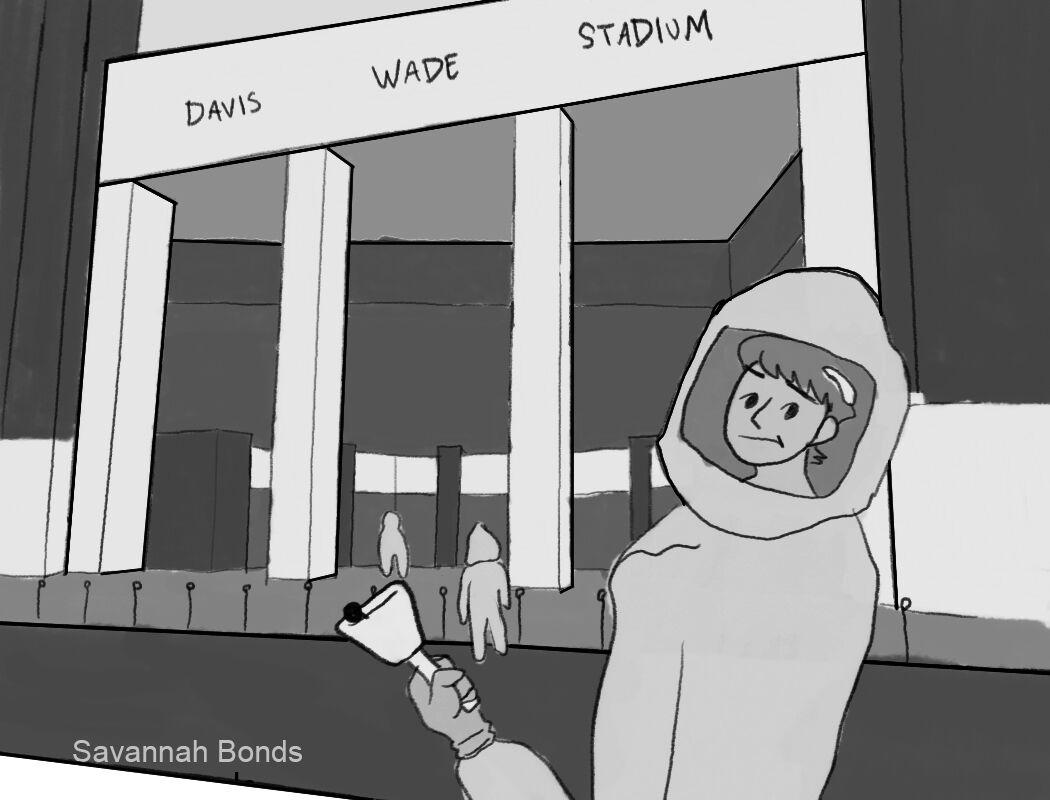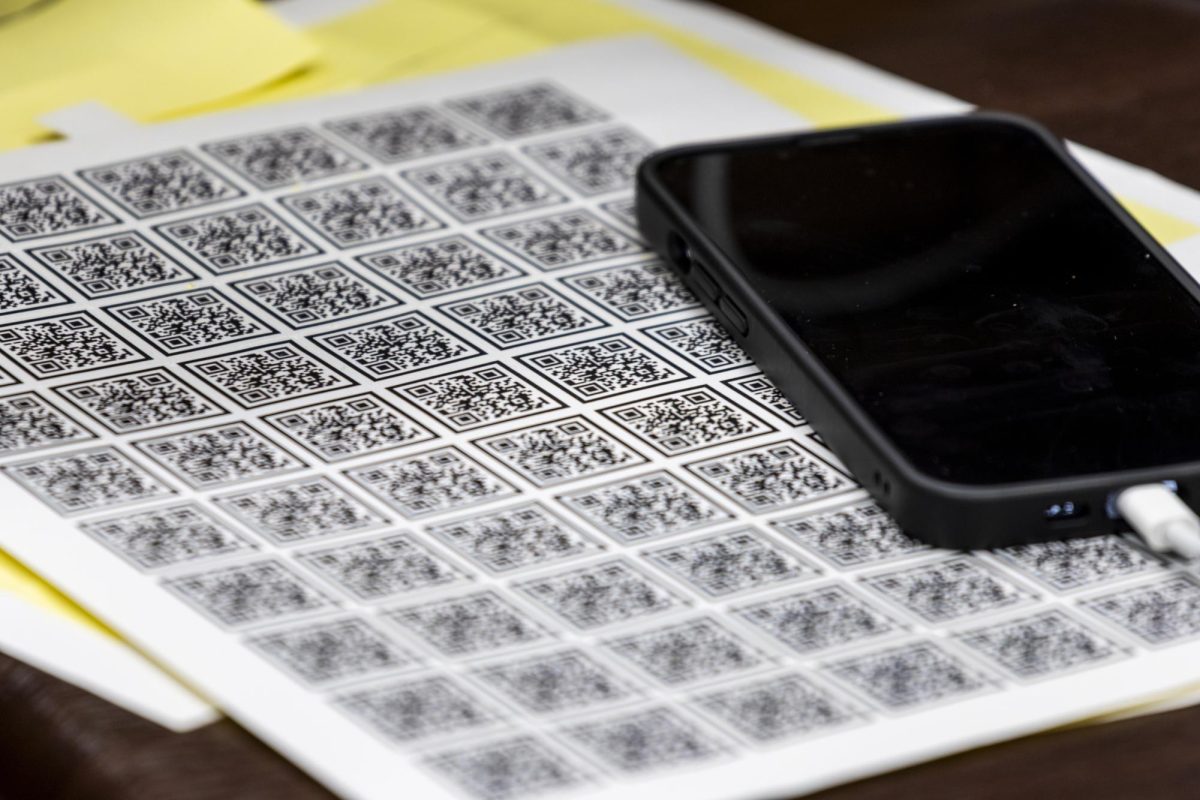The unexpected COVID-19 crisis has had an unprecedented effect on higher education, forcing professors to turn classes geared towards face-to-face instruction into online courses in a matter of days.
Benjamin McLarty, an assistant professor in Mississippi State University’s Department of Management & Information Systems who teaches a class of over 400 students, said it has been difficult to move his classes to an online format and still maintain the same quality of instruction.
“The transition has been very challenging,” McLarty said in an email. “I have taught online, but never at MSU, and never with classes this large. I am hopeful that I am up to the challenge of providing my students with the best content that I can give them. It has been a lot of effort so far to determine what is the correct way to do this.”
McLarty said, because of the size of his classes, a live method such as Zoom would be impossible, so he has chosen to record his lectures and post them on Canvas for his students.
The challenges involved in the move to online learning are different for every class size, class type and subject, and each teacher is adapting differently.
Rosa Nigro, an instructor in the Department of Classical & Modern Languages and Literatures, teaches four levels of Italian. Nigro said her classes typically utilize very little technology and rely heavily on face-to-face communication. The online format Nigro chose is videos of her PowerPoints with audio of her explaining what she normally would have in class. For her higher-level classes, Nigro requires students to record themselves reading excerpts of the class material aloud and to send the recordings to her.
Brandon Barton, an assistant professor in the Department of Biological Sciences who teaches a special topics elective, said his class already relied heavily on videos, and his students now just have to watch them on their own. Barton also said he is being mindful of the workload he places on his students because he knows they have other, more serious classes to worry about as well.
“I’m trying to make sure my class isn’t making their lives more difficult for the rest of the semester than it has to,” Barton said.
Barton said one of the class types most affected by the change to the online format is labs.
“Having to switch to online labs is pretty bad for the students really,” Barton said. “Our faculty is trying to make them useful and educational and still teach the material, but the students just aren’t going to get the same instruction and hands-on that they should’ve been getting. It’s a bummer.”
Nigro and Barton both spoke of the challenges that online classes present for students.
“I get it. I’m sympathetic. You just found out you don’t have to go to class anymore, sleep in, stay up late. It’s a really easy trap to fall into. I would’ve fallen into it,” Barton said.
“It seems easier because we are home, and we don’t even have to get out of the house. But it’s actually not, it’s not because it’s easier to get distracted,” Nigro said.
However, students are not the only ones struggling with the new format. McLarty said he feels he performs better in a classroom than recording his lectures in front of a computer.
“I also feel that I do a better job of delivering the course content in a face-to-face setting than I do with a voiceover of a PowerPoint deck. It is difficult to provide dynamic material and deliver a message with energy when the students are staring at a screen,” McLarty said.
Barton said personal initiative is going to be the deciding factor for students’ success with the online platforms.
“I think this is where self-discipline is really going to emerge as the important characteristic for students to have, or at least develop, in the next few weeks,” Barton said. “You might be able to eek out a C or a B or an A, whatever it is you want, but if you want to actually learn the material and proceed with your life having benefited from being here, I think you’re going to have to rise to that challenge.”
While the situation for higher education and class instruction is not ideal, Nigro pointed out the online format is a necessary precaution to take to prevent the further spread of the virus.
“We have to do whatever we have to to keep ourselves healthy,” Nigro said. “I’m from Italy, and I hear from my family and my friends. Their situation is pretty serious, and we don’t want to get to that point,” Nigro said.
McLarty said that, while the COVID-19 crisis has resulted in many disappointments for the MSU community, the precautions being taken are not in vain.
“I am deeply saddened by this situation and the sacrifices that we are all having to make at this time,” McLarty said. “I never could have imagined that I wouldn’t get to see my students again this semester or attend an SEC baseball game at the Dude this spring. However, if our sacrifice helps to alleviate someone else’s pain or prevents the death of a loved one, I would like to believe that what we are doing is worth it.”
Perspective from the professors: MSU faculty members give viewpoint on transition to online classes
About the Contributor
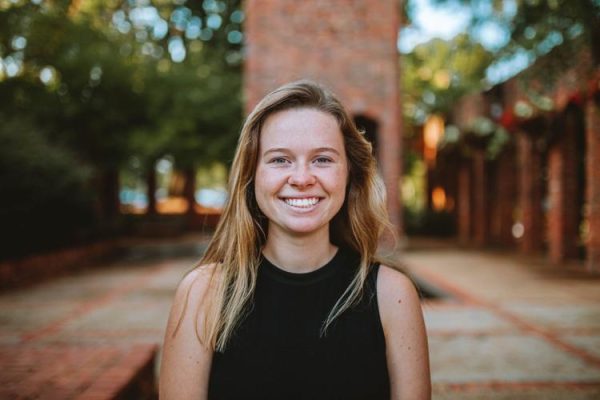
Hannah Blankenship, Former Editor-in-Chief
Hannah Blankenship served as Editor-in-Chief of The Reflector from 2021 to 2022.
She also served as the Managing Editor from 2020 to 2021 and as the News Editor from 2019 to 2020.
Hannah was named College Journalist of the Year at the 2022 Southeastern Journalism Conference.
0
Donate to The Reflector
Your donation will support the student journalists of Mississippi State University. Your contribution will allow us to purchase equipment and cover our annual website hosting costs.
More to Discover


